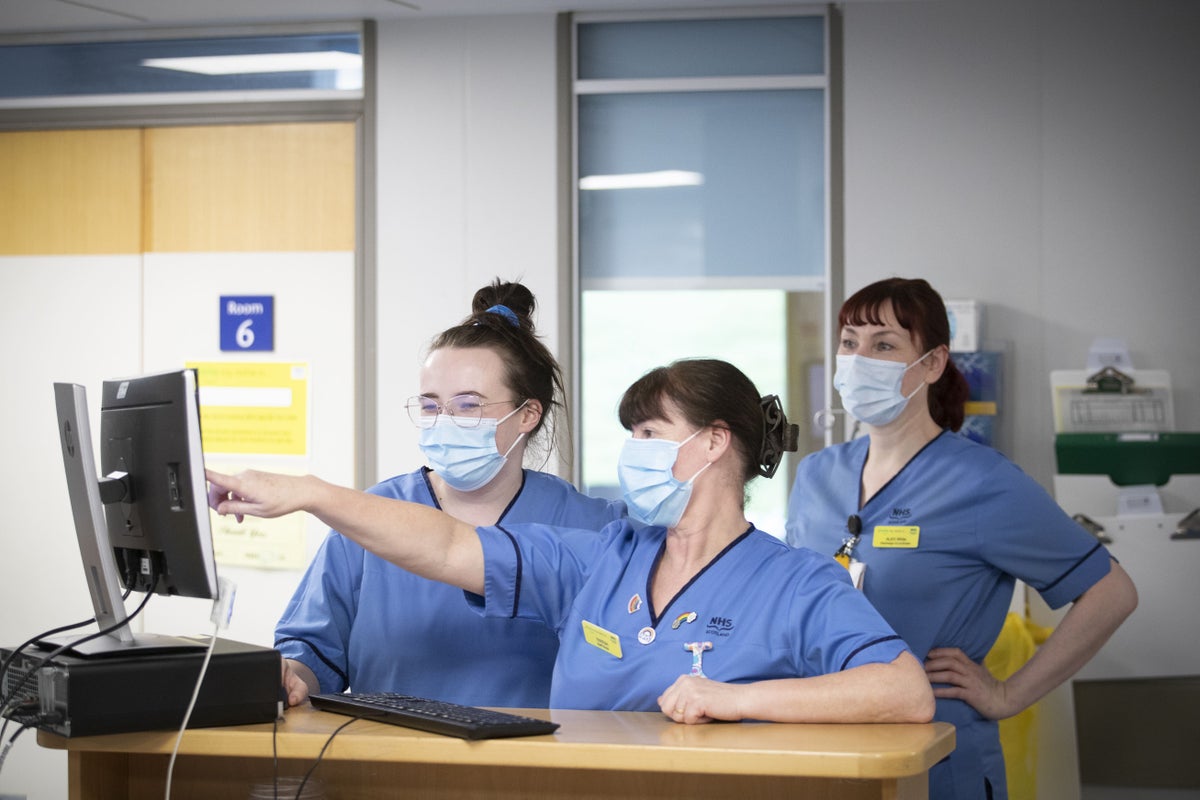
A record number of NHS staff have quit as better pay and work-life balance drive health workers out, new data has revealed.
Nurses have said they are “truly broken” as 42,400 staff voluntarily quit their NHS jobs in quarter two of last year – higher than any quarter over the last decade.
This week a special investigation by The Independent revealed how the NHS crisis is escalating across all areas of the health service. Dr Simon Walsh, from the doctors’ union the British Medical Association (BMA), said the health service was “in unprecedented territory, where harm is actually occurring week after week”.
Analysis showed 7,200 staff members gave “work-life balance” as the reason for resigning.
This is the highest ever recorded for this reason, according to the analysis, and it is now the second most common reason for staff to leave the NHS.
A row over pay with the government has prompted unprecedented strike action from NHS nurses, paramedics and other staff, with further planned later this month. The NHS also faces a potential three-day strike from Junior doctors later this year.
According to the latest figures, first reported by the Health Service Journal, 2,161 staff members left their jobs due to a “better reward package” – this was also the highest recorded to date.
Last year The Independent revealed internal NHS estimates showing the government was set to miss its target to have 50,000 more nurses working in the NHS by 2023-24, due to the number expected to leave their jobs in the next year.
Pat Cullen, the general secretary and chief executive of the Royal College of Nursing, said in response to leaving rates: “Nursing staff are leaving the profession, realising they can get similar or better pay in supermarkets and retail without the stress of the job.
“Poor pay is creating severe staff shortages and making patients unsafe. Nurses, patients and the public deserve better than a government that won’t listen.
“The prime minister needs to tackle this today and it starts by getting round the negotiating table the stop to exodus of staff from the NHS.”
The latest data on workers leaving comes as the NHS faces a worsening crisis, with record high waiting times for A&E in December, after more than half of patients waited more than four hours to be seen.
On Tuesday The Independent revealed internal NHS figures showed 50,000 patients a week over December and early January were waiting more than 12 hours in A&E for admission. This was a new record.

Patients across the country have told The Independent of waits on trolleys in A&E lasting days, and the most vulnerable being left to wait hours in cars and ambulances.
Rachael, a nurse working in a London A&E, said: “The numbers are huge, no one wants to wait, patients are frustrated at us, the workload is intolerable and relentless.
“At times it is wholly unsafe, it a been a long time coming and this is the result we are unable to gear up any further- there are no staff mobilise.
“The way I see it, it cannot be a case of simply opening more beds. All areas are interlinked. Social care is a mess, mental health is a catastrophe, primary care is overloaded, and staff are truly broken, resulting in a workforce post-covid that cannot do or sacrifice anymore. The workload can be intolerable and relentless, but we are trying to power through.”
Following a meeting with health secretary Steve Barclay on Thursday, the council chair for the BMA, Professor Philip Banfield, told The Independent: “If we don't restore junior doctors’ pay we're going to see even more junior doctors leaving the NHS. The NHS is in crisis, at the moment, the number of absent doctors from shifts and the locum bills, for example, and the harm that is coming to patients because of staff shortages.”







